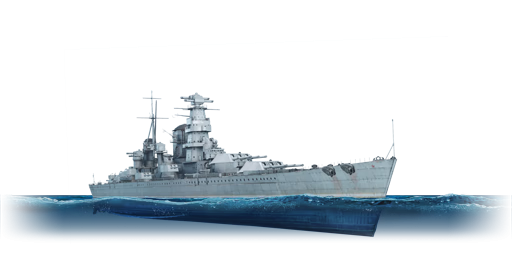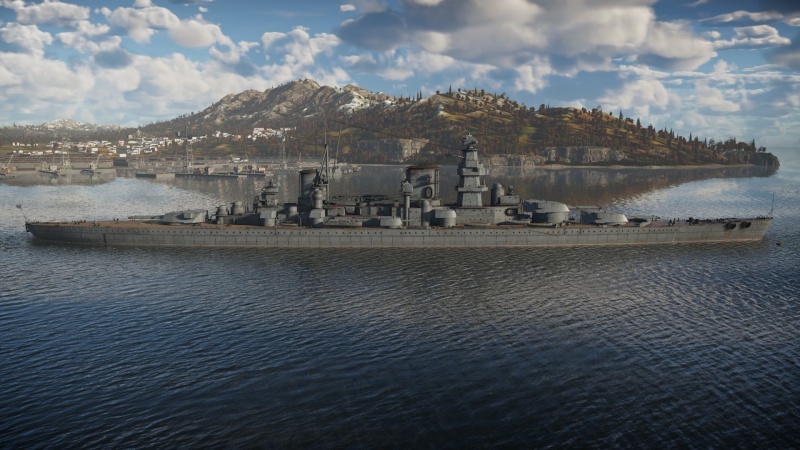Difference between revisions of "Kronshtadt"
R_nminbiY_n (talk | contribs) |
Inceptor57 (talk | contribs) m |
||
| Line 67: | Line 67: | ||
<!-- ''Describe the history of the creation and combat usage of the ship in more detail than in the introduction. If the historical reference turns out to be too long, take it to a separate article, taking a link to the article about the ship and adding a block "/History" (example: <nowiki>https://wiki.warthunder.com/(Ship-name)/History</nowiki>) and add a link to it here using the <code>main</code> template. Be sure to reference text and sources by using <code><nowiki><ref></ref></nowiki></code>, as well as adding them at the end of the article with <code><nowiki><references /></nowiki></code>. This section may also include the ship's dev blog entry (if applicable) and the in-game encyclopedia description (under <code><nowiki>=== In-game description ===</nowiki></code>, also if applicable).'' --> | <!-- ''Describe the history of the creation and combat usage of the ship in more detail than in the introduction. If the historical reference turns out to be too long, take it to a separate article, taking a link to the article about the ship and adding a block "/History" (example: <nowiki>https://wiki.warthunder.com/(Ship-name)/History</nowiki>) and add a link to it here using the <code>main</code> template. Be sure to reference text and sources by using <code><nowiki><ref></ref></nowiki></code>, as well as adding them at the end of the article with <code><nowiki><references /></nowiki></code>. This section may also include the ship's dev blog entry (if applicable) and the in-game encyclopedia description (under <code><nowiki>=== In-game description ===</nowiki></code>, also if applicable).'' --> | ||
| − | === [[ | + | === [[wt:en/news/7720-development-kronshtadt-shattered-dream-en|Devblog]] === |
During the 1930s Soviet shipbuilders were intensely working on designing new warships for the Soviet Navy. Among the top priorities was the development of a new cruiser design that could counter 10,000-ton cruisers of other nations. Several design proposals were submitted by 1935, of which none passed initial approval. The navy requested a new design, but the signing of a naval agreement with Great Britain in 1937 caused the requirements to collide with another similar project, ultimately resulting in this effort to also be canceled shortly afterwards. | During the 1930s Soviet shipbuilders were intensely working on designing new warships for the Soviet Navy. Among the top priorities was the development of a new cruiser design that could counter 10,000-ton cruisers of other nations. Several design proposals were submitted by 1935, of which none passed initial approval. The navy requested a new design, but the signing of a naval agreement with Great Britain in 1937 caused the requirements to collide with another similar project, ultimately resulting in this effort to also be canceled shortly afterwards. | ||
| Line 91: | Line 91: | ||
* ''other literature.'' --> | * ''other literature.'' --> | ||
| − | * [[ | + | * [[wt:en/news/7720-development-kronshtadt-shattered-dream-en|[Development<nowiki>]</nowiki> Kronshtadt: Shattered Dream]] |
{{Template:ShipManufacturer Admiralty Shipyards}} | {{Template:ShipManufacturer Admiralty Shipyards}} | ||
{{USSR battlecruisers}} | {{USSR battlecruisers}} | ||
Revision as of 04:03, 17 June 2022
Contents
Description
The Project 69, Kronshtadt, project is a rank VI Soviet battlecruiser with a battle rating of 7.0 (AB/RB/SB). It was introduced in Update "Danger Zone".
General info
Survivability and armour
Talk about the vehicle's armour. Note the most well-defended and most vulnerable zones, e.g. the ammo magazine. Evaluate the composition of components and assemblies responsible for movement and manoeuvrability. Evaluate the survivability of the primary and secondary armaments separately. Don't forget to mention the size of the crew, which plays an important role in fleet mechanics. Save tips on preserving survivability for the "Usage in battles" section. If necessary, use a graphical template to show the most well-protected or most vulnerable points in the armour.
Mobility
Write about the ship's mobility. Evaluate its power and manoeuvrability, rudder rerouting speed, stopping speed at full tilt, with its maximum forward and reverse speed.
| Mobility Characteristics | |||
|---|---|---|---|
| Game Mode | Upgrade Status | Maximum Speed (km/h) | |
| Forward | Reverse | ||
| AB | |||
| Upgraded | 71 | 34 | |
| RB/SB | |||
| Upgraded | 61 | 29 | |
Modifications and economy
Armament
Primary armament
Provide information about the characteristics of the primary armament. Evaluate their efficacy in battle based on their reload speed, ballistics and the capacity of their shells. Add a link to the main article about the weapon: {{main|Weapon name (calibre)}}. Broadly describe the ammunition available for the primary armament, and provide recommendations on how to use it and which ammunition to choose.
Secondary armament
Some ships are fitted with weapons of various calibres. Secondary armaments are defined as weapons chosen with the control Select secondary weapon. Evaluate the secondary armaments and give advice on how to use them. Describe the ammunition available for the secondary armament. Provide recommendations on how to use them and which ammunition to choose. Remember that any anti-air armament, even heavy calibre weapons, belong in the next section. If there is no secondary armament, remove this section.
Anti-aircraft armament
An important part of the ship's armament responsible for air defence. Anti-aircraft armament is defined by the weapon chosen with the control Select anti-aircraft weapons. Talk about the ship's anti-air cannons and machine guns, the number of guns and their positions, their effective range, and about their overall effectiveness – including against surface targets. If there are no anti-aircraft armaments, remove this section.
Scout plane
Usage in battles
Describe the technique of using this ship, the characteristics of her use in a team and tips on strategy. Abstain from writing an entire guide – don't try to provide a single point of view, but give the reader food for thought. Talk about the most dangerous opponents for this vehicle and provide recommendations on fighting them. If necessary, note the specifics of playing with this vehicle in various modes (AB, RB, SB).
Pros and cons
Summarise and briefly evaluate the vehicle in terms of its characteristics and combat effectiveness. Mark its pros and cons in the bulleted list. Try not to use more than 6 points for each of the characteristics. Avoid using categorical definitions such as "bad", "good" and the like - use substitutions with softer forms such as "inadequate" and "effective".
Pros:
Cons:
History
Devblog
During the 1930s Soviet shipbuilders were intensely working on designing new warships for the Soviet Navy. Among the top priorities was the development of a new cruiser design that could counter 10,000-ton cruisers of other nations. Several design proposals were submitted by 1935, of which none passed initial approval. The navy requested a new design, but the signing of a naval agreement with Great Britain in 1937 caused the requirements to collide with another similar project, ultimately resulting in this effort to also be canceled shortly afterwards.
Nonetheless, the Navy still sought to construct a fast and strong counter to other nations’ cruisers, resulting in the development of the Project 69 battlecruiser. However, the already modified requirements for a 26,200-ton vessel proved to be insufficient after the Soviet Navy found out about the specifications of the German Scharnhost class of battleships. This led to yet another update to the requirements in July 1938, now calling for an upgunned and up-armored 31,000-ton battlecruiser (or “heavy cruiser”). After another series of revisions, the design was finally approved for construction in Summer 1939, with two ships being ordered for completion by 1943.
One of the ordered ships - Kronshtadt - was laid down in Leningrad on 30th November, 1939. However, due to severe production delays, the warship was only deemed 10% completed by the time the German army launched its offensive on the USSR in June 1941. Following the invasion, all further construction work was suspended with some part of Kronshtadt being later used for fortifications around Leningrad. After the war, plans were formulated to convert the Kronshtadt into an aircraft carrier, but the design was already seen as outdated leading to the proposal being rejected. In 1947, the ultimate decision was made to dismantle and scrap the partially built hull.
Media
Excellent additions to the article would be video guides, screenshots from the game, and photos.
See also
Links to articles on the War Thunder Wiki that you think will be useful for the reader, for example:
- reference to the series of the ship;
- links to approximate analogues of other nations and research trees.
External links
| Admiralty Shipyards (Адмиралтейские верфи) | |
|---|---|
| Light Cruisers | |
| Project 68 | Zheleznyakov |
| Pr.68-bis-ZiF | Shcherbakov |
| Battlecruisers | |
| Project 69 | Kronshtadt |
| Battleships | |
| Sevastopol-class | Poltava |
| USSR battlecruisers | |
|---|---|
| Izmail-class | Izmail |
| Pr. 69 | Kronshtadt |





